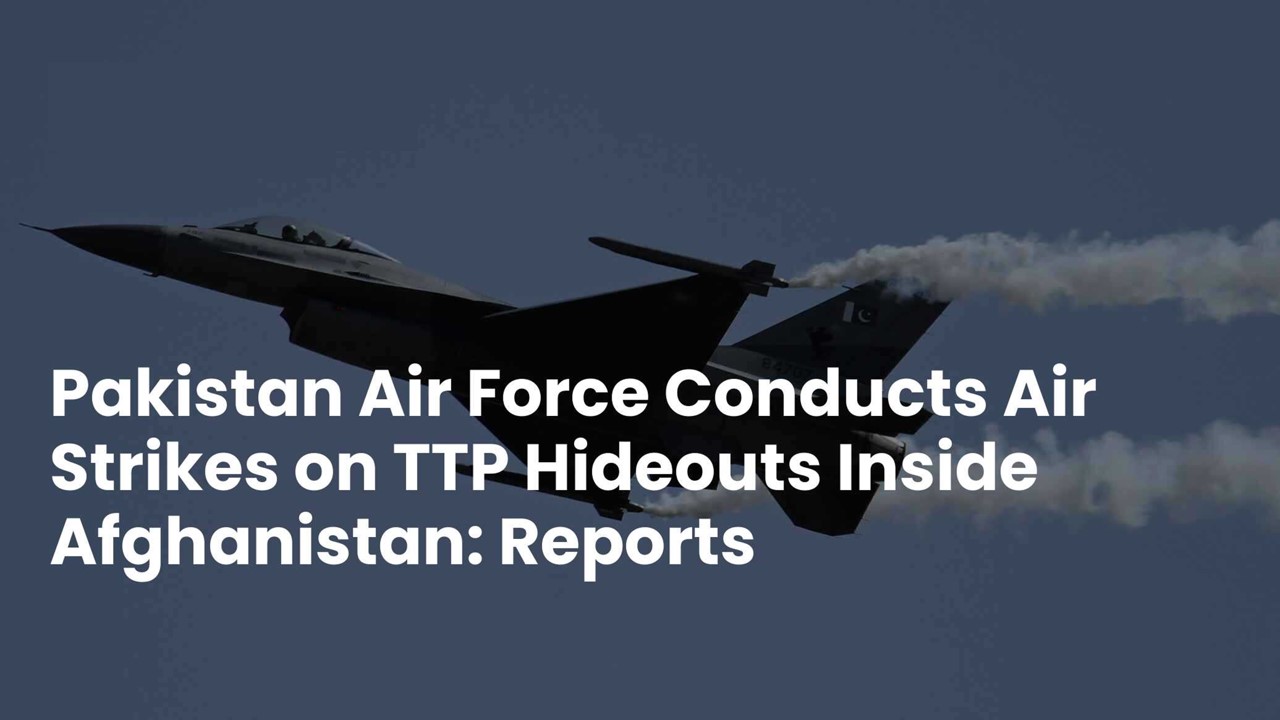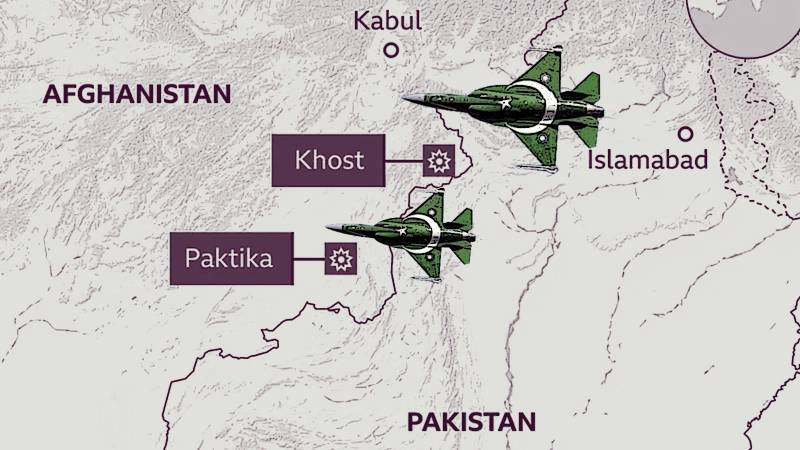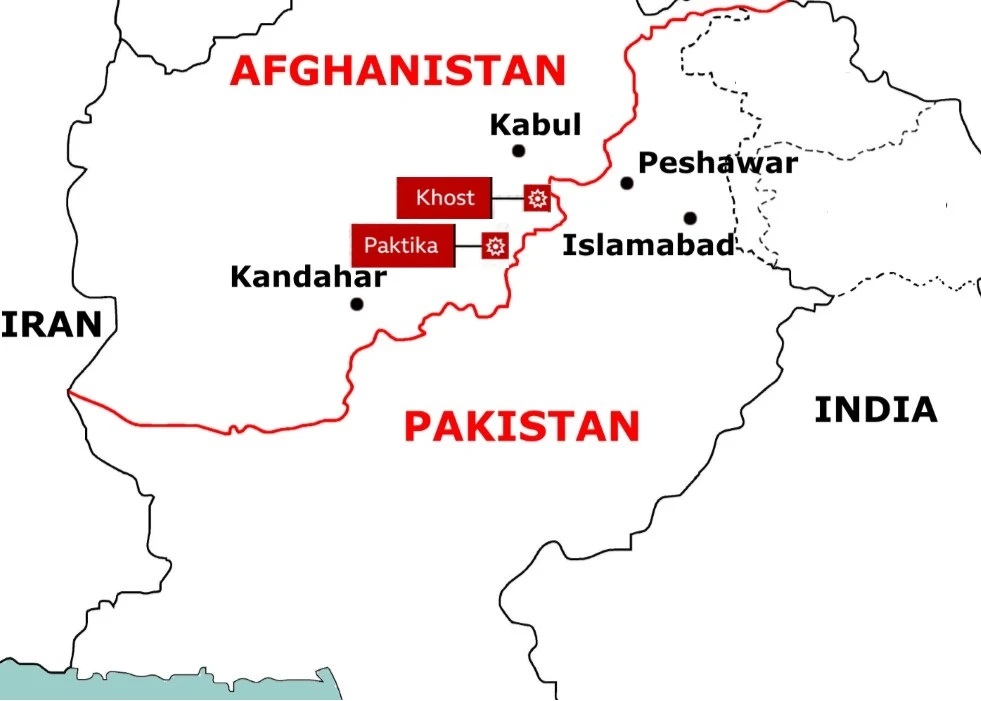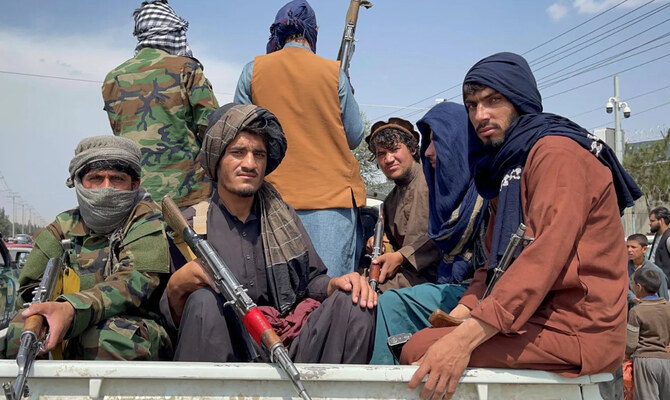
On Tuesday, Pakistan conducted airstrikes aimed at suspected Pakistani Taliban (TTP) locations in Afghanistan’s Paktika province. The strikes reportedly destroyed an important training site and killed multiple insurgents, say four security officials. This event, taking place in a mountainous area near the Pakistan-Afghanistan border, signifies an increase in Pakistan’s anti-terror efforts.

Cross-Border Action: An Uncommon Move
Anonymous officials noted it is uncertain if Pakistani jets entered deep into Afghan airspace. This was the second airstrike in 2023, following one in March that targeted suspected TTP locations. The operations signal Pakistan’s rising frustration with TTP attacks from Afghan territory. Pakistan has not released any official military statement.
Afghan Government Denounces Strikes
The Afghan Defence Ministry condemned the airstrikes, claiming that Pakistan hit civilian targets, including women and children. Local reports supported this claim, stating at least eight people, many of whom were refugees from Pakistan’s Waziristan, died. The reported death toll could increase.
The ministry stated, “The Islamic Emirate of Afghanistan sees this as a serious breach of international standards and will respond appropriately.” They further cautioned Pakistan against taking unilateral action, and emphasised Afghanistan’s right to defend its land.

Diplomatic Interactions Amid Tension
Notably, the strikes happened shortly after Pakistan’s special envoy for Afghanistan, Mohammad Sadiq, visited Kabul. Sadiq met with Afghan leaders, including acting Interior Minister Sirajuddin Haqqani, to discuss trade and regional peace. He also expressed sympathies over Khalil Haqqani’s recent death, a senior figure in the Afghan Taliban.
Additionally, a group from Pakistan’s Jamiat-e-Ulema Islam visited Kabul on the same day, showcasing ongoing diplomatic efforts despite rising tensions.
Increasing TTP Threat
Since the TTP voided a ceasefire in November 2022, they have stepped up attacks across Pakistan, which have claimed numerous Pakistani military and police lives recently. Islamabad accuses the Afghan Taliban of sheltering TTP members, a claim the Kabul government disputes.
Security expert Syed Muhammad Ali noted, “The airstrikes clearly indicate to the TTP that Pakistan is prepared to take significant action, both domestically and internationally.” He mentioned that the strikes were “accurate”, targeting only militant sites while trying to minimise civilian harm.

Context of the Situation
The rise of the Afghan Taliban in 2021 has strengthened the TTP, which has ideological links to them. Despite peace discussions in Kabul, the Afghan Taliban has struggled to control TTP operations, resulting in increased insurgency issues for Pakistan along its western frontier.
Strategic Consequences
The airstrikes reflect Pakistan’s shifting anti-terror strategy, moving towards unilateral action instead of diplomatic solutions. Such steps could further strain relationships with Kabul. Pakistan’s military and political leaders must navigate between fulfilling counter-terrorism goals and maintaining regional stability.
Conclusion
With escalating tensions between Pakistan and Afghanistan, the impact and outcomes of these strikes will influence future regional relations. Pakistan’s actions express its resolve to confront the TTP threat, yet the potential for retaliation and diplomatic conflicts remains significant.







